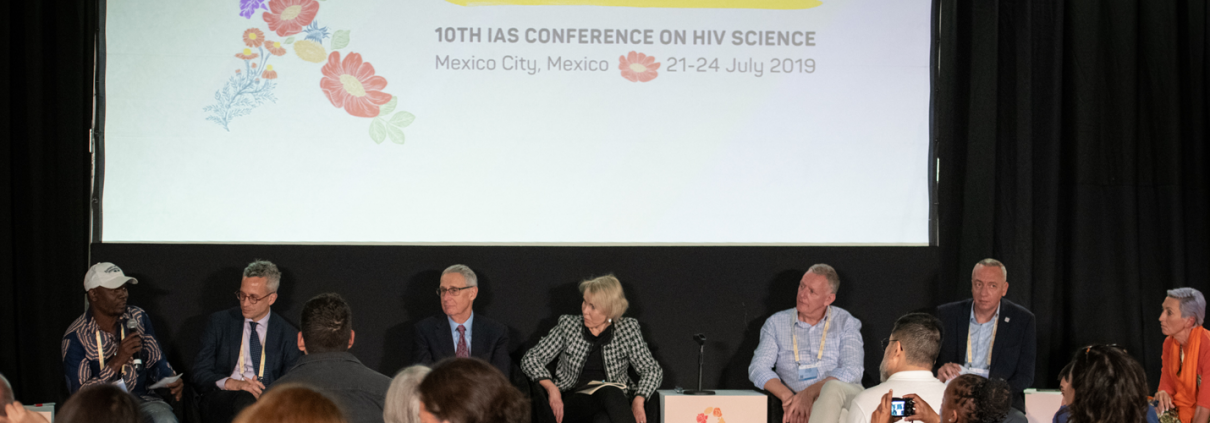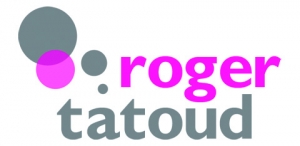With over 25 years of experience in global research and public health, Roger Tatoud brings expertise across science, operations, finance, fundraising, legal, and management in the not-for-profit sector.
Throughout his career, Roger has partnered with global health organisations to translate strategy into impactful programmes. His broad experience and extensive network span academia, non-profits, and the pharmaceutical industry, with a special focus on HIV and infectious diseases.
Most recently, Roger served as Deputy Director at the International AIDS Society (IAS), providing strategic scientific and technical leadership across HIV programmes and advocacy. He led key initiatives such as the Global HIV Vaccine Enterprise and the Industry Liaison Forum, contributed to IAS’s 2021–2025 strategy, and led training efforts to build sustainable research capacity in Africa.
Previously, Roger managed operations for a clinical immunology reference laboratory in London, working closely with partners in East and Southern Africa. He also directed a research service office supporting clinical and translational research, overseeing more than 20 international multicenter partnerships.
As a recognized HIV prevention advocate, Roger champions evidence-based research, community engagement, and the implementation of prevention and treatment tools. He values teamwork, participatory approaches, and thrives in complex multicultural environments.
Since 2021, Roger has offered consultancy services supporting global organisations in vaccines, diagnostics, capacity building, and adult education. His commitment is to deliver exceptional, results-driven consulting that bridges science, strategy, and operations.

Chairing a panel on HIV vaccine efficacy at the IAS Science Conference 2019 in Mexico. From left to right: Moses “Supercharger” Nsubuga, Jared Baeten, Carl Dieffenbach, Helen Rees, Willem Hanekom, and on my left Linda-Gail Bekker.
Services
Biomedical Research
– Global health
– Infectious diseases
– HIV prevention
– Vaccines and their manufacture (GMP)
– Basic, laboratory and clinical science (ICH-GCP, GCLP)
From Ideation…
– Strategic planning
– Partnership building
– Resources mobilisation
– Grant application development and coordination
to Management and Operations and…
– Organisational development, the endeavour to improve an organisation’s capability through the alignment of strategy, structure, people, metrics, and management processes.
– International consortium management
– Grant management and reporting
– Finance & operations
– Capacity building and training (such as grant writing, programmes and project management, research management, scientific writing, scientific and technical training).
Public engagement
– Scientific writing
– Scientific communication and dissemination
– Community engagement
– Advocacy
Selected work
Strategic review and strategy development
Having a clear vision is essential, but it is not enough to ensure success. A well-crafted strategy is key to turning vision into reality. Beyond guiding your organisation towards its goals, a good strategy helps communicate your purpose to employees, stakeholders, and funders, while providing a way to measure progress.
An effective strategy focuses your efforts and resources, supports decision-making, and helps prioritise actions. It also builds engagement and commitment by aligning your team, partners, and donors around a shared vision.
Ultimately, a strong strategy serves as a roadmap, making your organisation more effective, efficient, and successful.
There are many approaches to strategy design. While the Theory of Change is popular, I often favour combining Value Proposition and SWOT analysis. The crucial point is to choose a methodology that fits your organisation’s needs (See The framework).
This is an example of a strategy I oversaw, working closely with a very efficient colleagues and supported by a consultant.
I provide event organisation from start to finish, whether online or in-person. This includes content, event design, speaker identification and engagement, agenda and event script, supporting documents, logistics, chairing and reporting. Here are some past examples:
- Co-designed the 2023 Research-for-Cure Academy, and following academies.
- Co-designed the 2023 IAS HIV vaccine science academy, and following academies.
- Virtual workshop on “Design approaches for current and future HIV prevention efficacy trials.” The event ran over several months in 2020 and 2021 and included 19 presentations and 6 panel discussions covering a range of issues and news developments in the field of HIV prevention clinical studies.
- A three-part virtual event on experimental medicine for preventative HIV vaccines, which led to a publication.
- Satellites at the AIDS2022 conference held in Montreal, 29 July – 2 August 2022 (Recordings are available online).
- Africa HIV cure research: Strengthening industry-community engagement in clinical research. A satellite to explore barriers and facilitators to community’s meaningful engagement and participation in industry-led HIV cure research to ensure acceptability, scalability, and cost-effectiveness of HIV cure research interventions.
- Swinging into full gear: Strengthening industry engagement in HIV vaccine research and development. A satellite to discuss barriers to industry involvement in HIV vaccine R&D, including recommendations for activating and optimizing industry participation in R&D
- Experimental medicine trials in Africa: ethical considerations and community engagement. A satellite looking into ethical challenges and community perspectives when conducting experimental medicine trials for preventative HIV vaccines in Africa.
- Will mRNA lead to a long-awaited HIV vaccine? A satellite that aims to shed light on the promises and challenges of mRNA as a platform for the development of an HIV vaccine.
- What has COVID-19 changed in vaccine R&D and what remains to change for an HIV vaccine? A satellite looking at how much of COVID-19 learning has been applied to fasten the development of an HIV vaccine and how much more could be applied.
Scientific writing, such as educational material, position papers, and scientific reports and manuscripts, for a lay and specialised audience.
- In 2021, the International AIDS Society published an updated HIV Cure Global Scientific Strategy. I coordinated and co-produced a comprehensive lay summary entitled “Research Priorities for an HIV Cure: IAS Global Scientific Strategy 2021: The science in context.”
- In 2022, working with Rebekah Webb, we updated and expanded the IAVI Vaccine Literacy Library originally published in 2008. The library contains basic information about HIV, TB, and Lassa virus vaccines, explained in simple language and in a user-friendly format to be used by IAVI staff at its clinical sites. It is accompanied by an 80-slide PowerPoint deck to support training activities. The design was executed in collaboration with Anthea Duce.
- Also in 2022, I developed a position paper on the inclusion of persons with HIV in non-HIV clinical research for the EATG. This paper was accompanied by an advocacy strategy to support the development and implementation of inclusive clinical research guidelines toward improving health outcomes for persons with HIV.
- In 2023, I supported the work of the WHO Science Council on the added value of mRNA technology for the prevention of infectious diseases. This work included a desk and literature review, the design, planning, and organisation of an online consultation of experts, and the production of a report.
See a full list of publications here.
Other works include a literature review on potential safety concerns with a vaccine for an international organisation.
Participated and led on a number of capacity building programmes focussing on early career researchers in Africa.
- Co-designed and delivered part of the IAS Research for Cure Academy in 2023, 2024 and 2025 (See for example: 2023 Research-for-Cure Academy)
- Co-designed and delivered part of the IAS Vaccine Science Academy in 2023, 2024 and 2025 (See for example: 2023 IAS HIV vaccine science academy)
- Co-designed and delivered part of the IAS Vaccine Advocacy Academy in 2025.
I was part of the pilot AREF’s EXCELL Researcher and Leadership Development, which aimed to help accelerate the development of organisational and individual excellence and leadership in research. I then was part of Excell Research and Leadership Development Programme which aimed to transform the research leadership capabilities of partner Institutions and their nominated Fellows – to enhance research capacity for global health in Africa for Africa – and ultimately to transform health and save lives.
I conduct training in programme management and grant writing for AREF and, in collaboration with Skating Panda for IAVI.
From identifying and engaging with funders, to the coordination of application involving international multi-stakeholders partnership, I have worked with a range of international organisations and funders including the MRC-UK, EDCTP, Wellcome Trust, USAID.
Roger Tatoud, immatriculé au repertoire des Entreprises et des Etablissements (SIRENE) sous le numéro SIREN 902090729.
